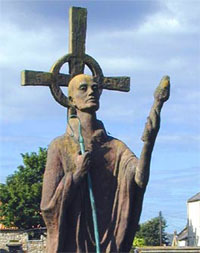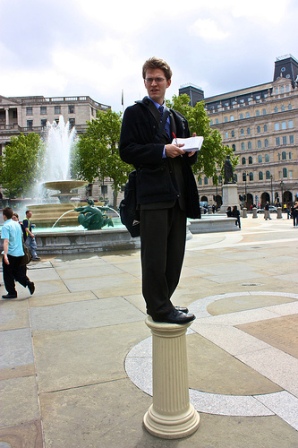Money and wealth has been in the news a lot in these last few years, particularly as the government afflict a poverty/austerity agenda on the population whilst not being so committed to the principles themselves. I’m not going to over-tire my typing fingers talking about the rights and wrongs of the UK government, but I’ve been thinking about how Christians can live counter-culturally in today’s financial climate.
I get really tired of ‘stuff’. It’s not only what stuff costs, but it’s the suffocating presence of it, especially when little of it is really needed. And then there’s the space it takes up and the reminder that folks in the UK in my position are in possession of stuff that some people in the world can only dream of. A comfortable bed, nice home, working vehicles, etc. It’s very easy to justify the stuff we surround ourselves with. I can hear all the arguments, and I know them, because I use them myself. This is part of the cycle of energy that must be engaged to keep stuff unthinkingly.
We cannot escape that Jesus came to earth and lived a simple life, in spite of the potential to ‘Lord it over’ and accumulate wealth and influence in the corridors of power as God’s messiah.
– Might the followers of Jesus adopt a lifestyle that displays that life isn’t all about stuff?
– Might the followers of Jesus adopt a lifestyle shaped by the kind of generosity that turns our earning power into a means of relieving poverty and suffering through sacrificial giving?
– Might followers of Jesus adopt a theology of ‘enough’ – being content to own no more than is necessary rather than desirable?
– Might Christian communities find ways to own necessary things together and share? (Cars, lawnmowers, bicycles, tools…even homes? etc)
– Might followers of Jesus live in the light of the challenges of climate change and seek to minimise consumption that especially compromises the environment?
– Might followers of Jesus consider the source of the things we buy, consciously aware of labour conditions and trade justice?
– Might followers of Jesus consider what it would mean to share surplus income with other families who don’t have enough?
I guess I could think of a variety of suggestions along this line, but the question remains – how, in a world obsessed with wealth, tax avoidance and accumulation of stuff that will break, rot and clutter things up, can followers of Jesus point to a different and just way of living?
I’ve not mastered this at all, in fact, I’ve only just begun to act on some implications of these questions. I’m doing a bit more reading and reflecting the subject, particularly in the light of moving our lives towards living a credible life amongst those we are going to be working amongst. But more than that, I don’t want my freedom to be restricted by material things, regardless of whether I can afford them or not.


